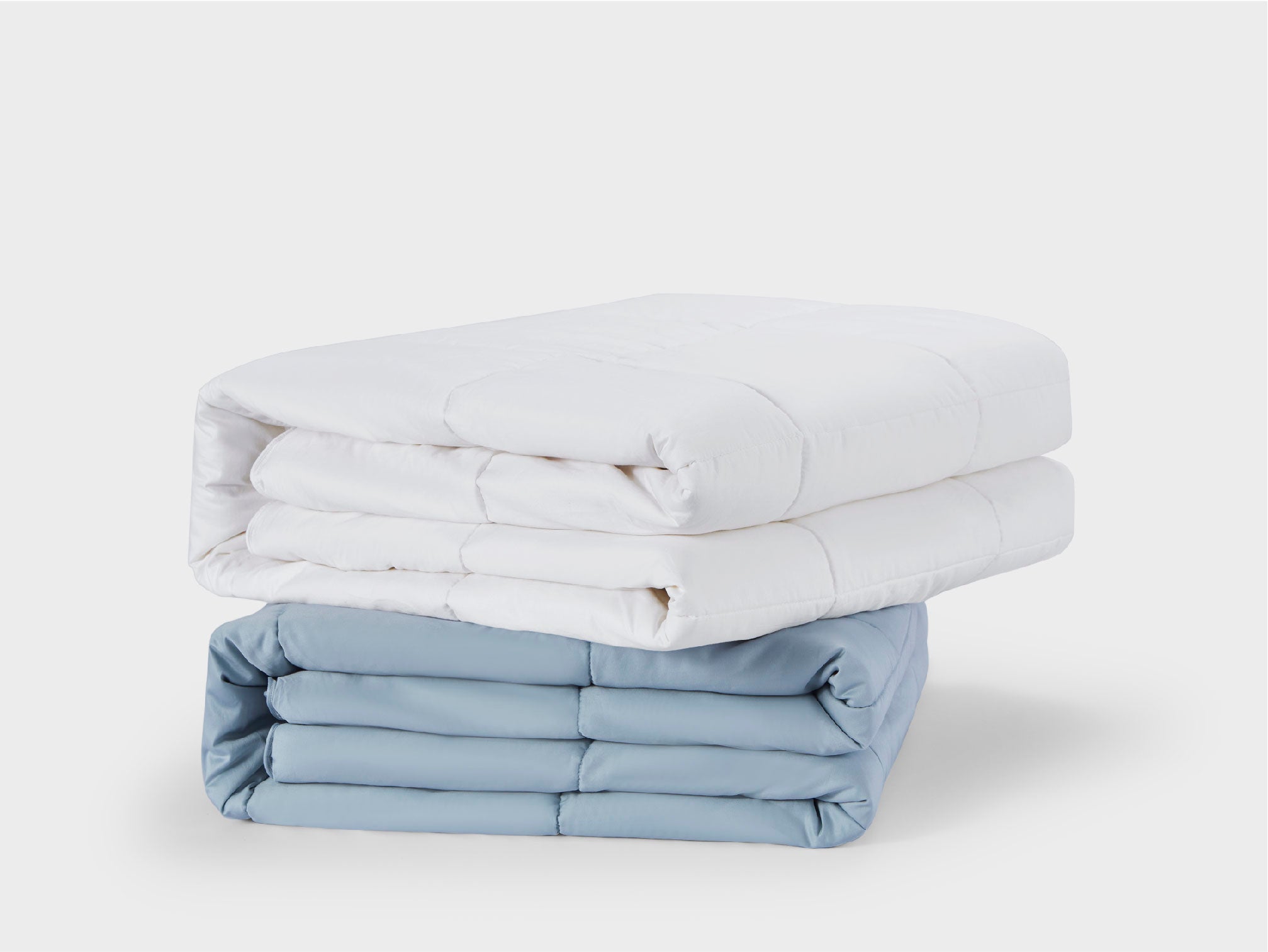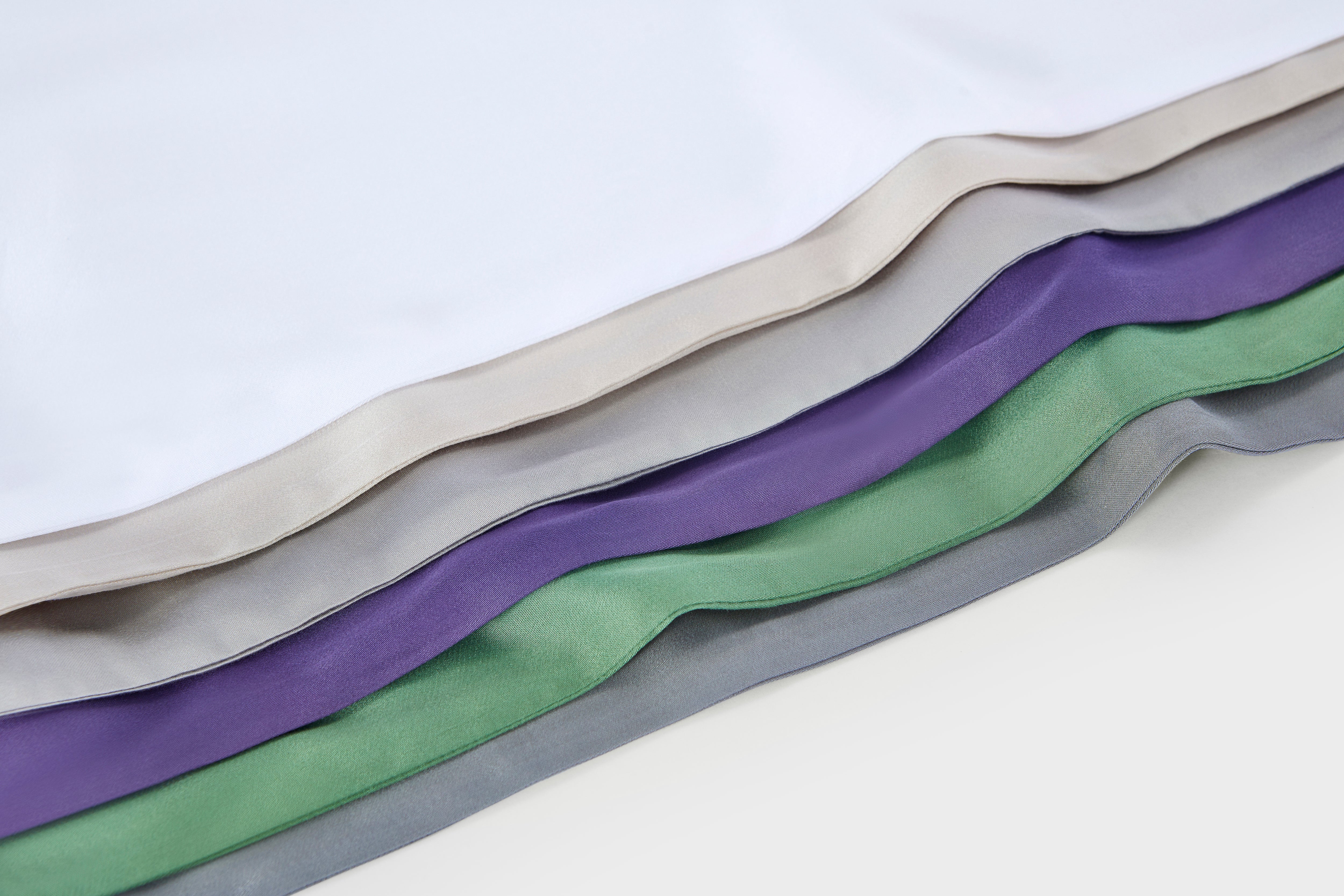Have you ever wondered how often you should be washing your bed sheets? It's a common question that many people have, yet there doesn't seem to be one definitive answer. Some say once a week, others say every other week, and some even suggest once a month. So, what is the right answer?
There are various factors that can impact the frequency of washing your bed sheets. These factors include personal hygiene habits, lifestyle choices, and even the type of fabric used in your sheets. In this guide, we will delve into these factors and offer insightful guidelines to help you keep your bed sheets clean and fresh.
Why is it Important to Wash your Bed Sheets Regularly?
Before we dive into how often you should be washing your bed sheets, let's first understand why it's important to do so.
Your bed sheets are in constant contact with your body every night, and over time, they can accumulate sweat, dead skin cells, and even bacteria. This buildup not only creates an unpleasant smell but also creates an environment that is ideal for dust mites and other allergens. Washing your bed sheets regularly helps to remove this buildup and maintain a clean and hygienic sleeping environment.
How Often Should You Wash Your Bed Sheets?

The frequency with which you should wash your bed sheets can be subjective and depends on several factors. Washing your bed sheets every week is recommended for those who sweat excessively during the night, have allergies, or are prone to sickness. However, if these conditions do not apply to you, washing your sheets every two weeks might be adequate.
Moreover, lifestyle choices and habits can also influence the washing frequency. If you eat in bed, have a pet that sleeps with you, or often go to bed without showering, washing your sheets more often is advisable. It's also worth noting that during summer months or periods of warmer weather, you may need to wash your sheets more frequently to combat sweat and odor.
Factors that Influence How Often You Should Wash Your Bed Sheets
Below are some of the main factors to consider when deciding how often you should wash your bed sheets:
1. Bedding Material
The type of fabric your bed sheets are made from can impact their durability and how often they should be washed. For instance, cotton and linen sheets hold up well after multiple washings, while silk or satin may require more delicate care.
In addition, certain fabrics like flannel or fleece tend to trap more heat and moisture, making them ideal for cooler weather but also require more frequent washing.
Click to learn about 10 bedding accessories
2. Personal Hygiene Habits
Personal hygiene habits significantly impact the frequency of washing bed sheets. For instance, if you generally shower before bed, your sheets may stay cleaner longer, requiring less frequent washing.
On the other hand, if you often go to bed without showering or after exercising, your sheets may accumulate sweat and dirt more quickly. Similarly, applying body lotions or creams before bed can transfer residues onto your sheets, necessitating more frequent washing. Therefore, considering these habits and adjusting your bed sheet washing schedule is key to maintaining a clean and hygienic sleep environment.
3. Health Conditions and Allergies
If you or your sleeping partner have allergies, respiratory conditions, or are prone to sickness, washing your bed sheets more frequently is crucial. This is because allergens and bacteria can build up on your sheets, worsening symptoms or leading to illness. In addition, if you're sick with a contagious illness like the flu, washing your sheets after recovery can help prevent re-infection.
How Do You Wash the Bed Sheets the Right Way?

Properly washing your bed sheets is equally important as the frequency at which you do so. Below are valuable tips to ensure that your bed sheets are washed with utmost care and attention:
1. Remove Stains Before Wash
Treating any visible stains before putting your bed sheets into the washing machine is crucial. Stains from food, body oils, or cosmetics can potentially set into the fabric during the wash process, making them harder to remove. Pre-treating stains with a dedicated stain remover or a solution of baking soda and water can help ensure your sheets come out of the wash spotless.
2. Use the Right Water Temperature
The water temperature you use can also impact the cleanliness and lifespan of your bed sheets. Hot water is more effective at removing stains and killing bacteria, but can also cause shrinkage or damage to delicate fabrics. Warm or cold water is usually suitable for most bed sheet materials, but always check the care label for specific instructions.
3. Avoid Fabric Softeners
Fabric softeners may give your sheets a pleasant scent and soft feel, but they can also reduce the fabric's absorbency and leave a residue that traps dirt. White vinegar or wool dryer balls should be used instead of traditional softeners to maintain your sheets' freshness and longevity. These alternatives naturally soften fabrics without compromising their cleanliness or durability.
4. Avoid Overloading your washer
Overcrowding your washing machine can prevent your bed sheets from being thoroughly cleaned and cause unnecessary wear and tear on the fabric. It's best to wash your sheets separately from other laundry items and avoid filling the washer more than three-quarters full. This allows enough space for the sheets to move freely during the wash cycle, ensuring they are properly cleaned and rinsed.
5. Dry on Low Temperatures
High heat can damage the fabric and cause shrinkage when drying your bed sheets. It is recommended to use low heat or air-dry settings on your dryer or hang them outside to dry in the fresh air. If using a dryer, remove the sheets while they are still slightly damp and finish drying by hanging them up or laying them flat to prevent wrinkles.
What Happens if You Don't Wash Your Bed Sheets Often Enough?
Not washing your bed sheets regularly can lead to a multitude of problems. Your sheets can become a breeding ground for dust mites, which thrive in your bed's warm, moist environment. These minute creatures can trigger allergies and asthma.
The accumulation of sweat, skin cells, and body oils can promote bacterial and fungal growth, leading to skin infections and potential health issues. In addition, unwashed bed sheets can cause acne breakouts due to dirt and oil buildup on the skin. They can also generate unpleasant odors, making it uncomfortable to sleep.
One of the most alarming consequences of not washing your bed sheets frequently is the potential exposure to harmful pathogens, especially if you have been ill. Failure to clean your sheets after illness can increase the risk of contagion and re-infection.
Conclusion
Keeping your bed sheets clean is essential for maintaining a healthy and comfortable sleeping environment. How often you should clean your sheets depends on various factors, such as personal hygiene habits, health conditions, and bedding material. It's also crucial to follow proper washing techniques to ensure the longevity of your sheets while keeping them fresh and hygienic.
So the next time you lie in bed, rest easy and have the peace of mind knowing that clean sheets will help you get a good night's sleep. Review and adjust your sheet washing habits to ensure a fresh, comfortable sleep every time. The diverse range of bedsheets provided by Souver has become the first choice of many people due to its comfortable and soft properties.
FAQs
1. How often should you wash your bed sheets?
Regularly washing your bed sheets is essential for maintaining hygiene. Generally, it is recommended to wash your sheets every one to two weeks. However, this frequency can vary depending on personal habits, health conditions, or if you've been sick.
2. Can you get sick from not washing your bed sheets?
Yes, not washing your bed sheets regularly can lead to a buildup of bacteria, fungi, and dust mites. This can trigger allergies, asthma, skin infections, and even re-infection after an illness.
3. Does washing in cold water clean bed sheets effectively?
Washing bed sheets in warm or cold water is usually suitable for most materials. However, hot water is more effective at removing stains and killing bacteria. Always check the care label for specific washing instructions.
4. Can fabric softeners harm bed sheets?
While fabric softeners can make sheets feel softer and smell good, they can reduce absorbency and leave a residue that traps dirt. Alternatives like white vinegar or wool dryer balls are recommended for maintaining the freshness and longevity of your sheets.
5. Is it okay to wash bed sheets once a month?
While washing bed sheets once a month might be okay for some, washing them every one to two weeks is often recommended. This frequency can vary based on personal hygiene habits, allergies, health conditions, and whether or not you sweat a lot at night.
Related reading: How to choose bed sheet size?








留言
此網站已受到 hCaptcha 保護,且適用 hCaptcha 隱私政策以及服務條款。